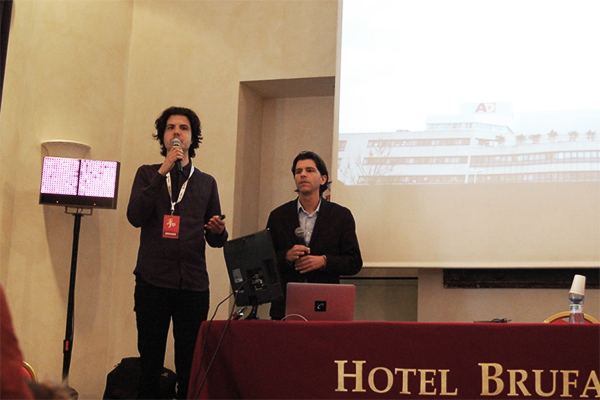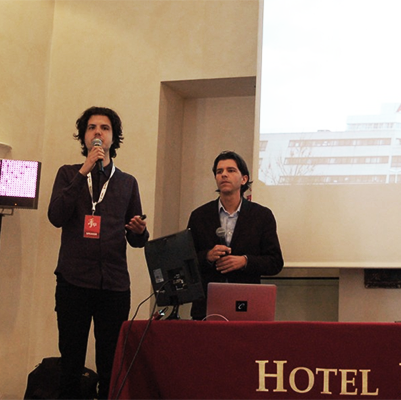
photo by Martina Melgazzi
“If you learn about society through the lens of the news, you learn how society doesn’t work.”
– Rob Wijnberg, founder and editor in chief of De Correspondent.
Even before its conception, De Correspondent defied every rule in the book. Its core concept disputed both traditional and contemporary news values. Its corporate model challenged the conventional patterns of every small business start-up. What resulted was a formidable crowd-funded initiative that raised $1.7 million in just 30 days –and with it, an online journalism platform was born.
Ernst-Jan Pfauth and Rob Wijnberg were working at NRC Handelsblad, or “the Netherlands’ version of The New York Times”, when they became dissatisfied with what the market had to offer in terms of journalism. They thought established media painted a somewhat superficial picture of the world and its issues, themes and discussions and felt the need to initiate more in-depth conversations “without any compromise.”
They envisioned a platform that could separate them from the herd of publications already available. One that told the stories which had previously slipped under the radar of the mainstream media.
Most importantly, they wanted to create something purely for the value it brought to their readers. Ernst takes note that in Holland, and all over the world for that matter, news organizations are profit-driven. “This means they become risk-avoiding,” he says.
“We were the two youngsters trying to change journalism and we both had our visions. My goal was to change newspapers into something young readers would want.”
Rob’s basic idea was to go from ‘news‘ to ‘new’.
“Everything in a newspaper is aimed at safeguarding the legacy, “he says. “ It is about how to keep making the same information, keeping the same ways of operating and functioning. Content-wise there is nothing really different [out there].”
On start-up, they were advised to “keep it short” for a passive audience with a decreasing attention span; to “start small”, and lure clients in one by one; and to use advertising – even employ journalists who could write up the adverts. And at the end of the day, young people are constantly surrounded by news, with unlimited free access and exposure: so who would pay for more of the same thing?
They chose a different path.
“We didn’t follow these rules because they were contrary to our beliefs,” Ernst says. “We believe we are good storytellers, developers and designers.”
The project launched in January 2013, without any kind of bank loan – they wanted people to support them. They needed 15,000 people who would trust a final product which was “not even vaguely there” enough to donate €60 each. That would make them €1.2 million, just enough to see the platform through its first year.
“We didn’t want to focus on the budget, but on the number of people who joined us. Odds were fifty-fifty,” Rob admits.
And then a major opportunity arrived. Ernst was invited as a guest on De Wereld Draait Door, one of Netherlands’ most popular talk shows, with a regular audience of one million people (out of a total of 16 million who live in the country).
“In one day, we had €5,000. In just eight days, we reached our goal.” It was the dream of every crowd-funding enthusiast.
De Correspondent went live in September 2013, and by the end of the month, it had 18,933 members.
After going through a pile of 1,800 job applications, they hired eight full-time writers and 17 freelancers, who now are the magazine’s “conversational leaders and expert contributors”, as they call their staff.
“You have to have people in your team that exemplify the kind of journalism you want to produce. They need to symbolize good journalism,” Ernst says.
As of today, the magazine has 32,360 paying subscribers.
They maintain that their success has nothing to do with analytics, SEO or headlines, and everything to do with “focusing on giving analysis” to their readers.
Ernst and Rob have drawn some valuable lessons from their crowd-funding adventure, which they shared with the audience at the International Journalism Festival:
– Don’t consider what you think people want. You need to think of what people should want.
– Don’t wait for innovation to happen.
– Have a designer and developer in the highest ranks
– Attitude comes before technology
– Forget about the hypes (because they’re always about the past)


